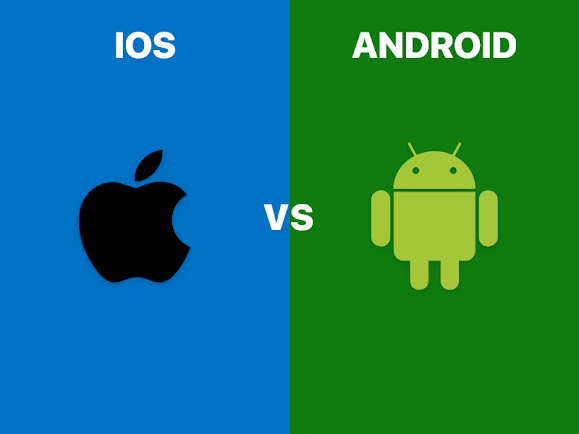Android vs. iOS: Which platform to choose for a new startup?
Smartphones are used by around 5.11 billion people worldwide, and this figure is expected to rise in the next decade. Every budding and leading iPhone application development company globally is thriving with an abundance of iOS app demands.
This movement will propel the app development industry to new heights as businesses and consumers strive for better mobile applications. In addition, the average person spends roughly three hours every day using their smartphone.
As a result, the upgrading and updating of mobile applications will be accelerated for them to remain relevant throughout time. By 2023, the smartphone industry is estimated to reach 7.33 billion handsets. Because this figure is so prominent, it will make it easier for application developers to keep up with the demand.
The expansion of mobile apps must result in the evolution of corporate demands and user preferences. Mobile applications that keep up with these developments will skyrocket in the next few years. As a result, businesses and organizations will now concentrate on determining the ideal technique for constructing their mobile apps.
Having stated that, how simple or tough is it to begin developing an app? The entire process of developing a mobile application is complicated. From concept to implementation, one question never changes: should we create an iOS or an Android app? This is a question that has traditionally dominated the operating system industry.
The Android platform dominates the worldwide mobile application industry with 68 percent of the market share, followed by iOS with roughly 30 percent and smaller operating platforms with 2 percent. Does this imply that Android is the finest and safest platform to use? Of course not; there are plenty more elements than market share that may make or ruin your mobile app ambitions.
To assist you in making an intelligent choice, consider the following benefits and downsides of iOS versus Android app development:
App Development for iOS
Custom iOS application development, which was designed exclusively for Apple devices such as the iPhone and iPad, has generated significant income for Apple since it is widely used in developed nations. iOS is based on closed-source technology that only Apple has access to. This increases the platform's security and reduces the likelihood of being hacked.
The Advantages of the iOS Platform
Standardized UI Design: Apple offers a precise standard for UI design, allowing developers to construct a sturdy iOS application easily.
Benefits: Apple consumers are known to be highly devoted to their iPhone or iPad, which leads to increased spending on iOS software. Apple has created a trustworthy brand posture for itself, so users have continued to use the same brand for years.
Versatility: The same iOS version is used on almost all Apple devices. Developers do not need to commit time and effort to build app versions for various devices with varying resolutions and screen sizes.
Disadvantages of the iOS Platform
Cost: iOS app creation necessitates using the Xcode IDE, which is only available on Macs. Your initial expenditure will skyrocket if you do not already have a Mac and Xcode.
Stringent Publishing Standards: iOS has very tight standard criteria that must be met while designing an app; otherwise, the app will be rejected ruthlessly.
Tailoring: Because the standards are stringent and uniform, you cannot customize your mobile application and become like everyone else.
App Development for Android
Android is the world's most popular operating system. The accessibility and low cost of Android cell phones have aided their growth and reach. Giant global enterprises easily hire top-notch Android Application Development services to build the best android apps for their business.
Advantages of the Android platform:
Rules for publishing: Android store rules are not as strict so that app developers can post the Android PacKage, and the program will be available in the Play Store within hours. However, it isn't very easy for a game development company.
Open System: Developers have more creative flexibility and the opportunity to create more significant things.
Design: Google offers beginner-friendly layouts and templates.
Disadvantages of the Android platform
Not as adaptable: Adapting to different screen sizes, resolutions, and aspect ratios can be difficult for developers.
Cost: The total development cost rises as you optimize and test.
Testing: It takes time and money to test the application's usage on all of them.
Endnotes
After learning about these critical distinctions between the two most prominent market players, you should know which platform to use. AppStudio is a leading IT solution firm in Canada & Toronto; we offer cost-effective services for Android and iOS. For developing a successful mobile application, connect with our ios app development team to get an instant free quote.




Comments
Post a Comment